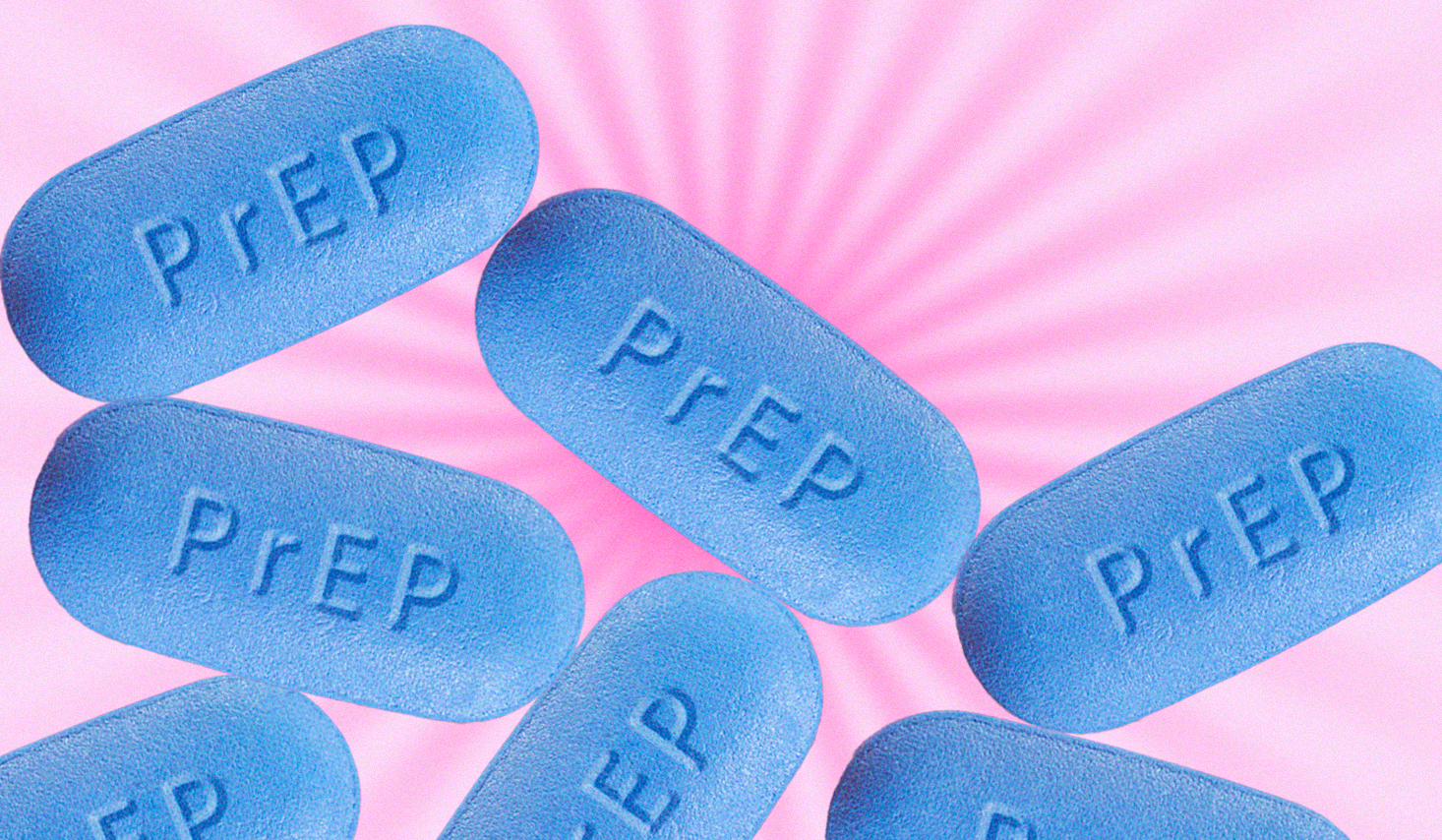
Taking PrEP (pre-exposure prophylaxis) is one of the most effective ways to reduce the risk of getting HIV, but knowledge about it among the British public remains scarce. In fact, just 20 per cent of people in the UK know it exists, according to research conducted by YouGov on behalf of Terrence Higgins Trust, the country’s leading sexual health charity. A staggering 77 per cent were also unaware that England can end new cases of HIV by 2030, which sexual health experts have said PrEP is key to making a reality. So, what is the drug, how effective is it at preventing HIV and where can you get it?
What is PrEP?
PrEP (sometimes known as Truvada) is a medicine that drastically reduces the risk of getting HIV from sex or injection drug use when taken effectively. It typically comes in the form of a tablet containing tenofovir disoproxil and emtricitabine, both of which are used to treat HIV. Once there’s enough of the drug inside you, it works by blocking HIV from getting into the body and replicating itself.
Long-acting injectable PrEP also exists and has been approved by the Food and Drug Administration (FDA) in the US, though is not yet available in the UK. It can also exist as a vaginal ring, though this is also not yet available in the UK.
PrEP does not protect you against any other sexually transmitted infections (STIs).
How effective is it at preventing HIV?
When taken effectively, PrEP reduces the risk of getting HIV from sex by 99 per cent. When taking it daily, PrEP needs to be taken for seven days until it becomes fully effective.
The PrEP Impact Trial, which involved more than 24,000 participants across 157 sexual health services from October 2017 to July 2020, proved the real-world effectiveness of the drug and concluded that it should be used more widely to prevent the spread of HIV. John Stewart, National Director for Specialised Commissioning at NHS England and co-Chair of the PrEP Impact Trial Oversight Board, said: “Not only did the trial directly prevent many cases of HIV, help normalise the use of PrEP, remove stigma and pave the way for a routinely commissioned clinically and cost-effective PrEP service; but it also made a very real contribution towards our goal of ending new cases of HIV by 2030.”
View this post on Instagram
How often should I take it?
Most people take it orally in the form of a tablet, either regularly (one a day) or ‘event-based’ (two tablets two to 24 hours before sex, then one 24 hours after sex and a further one 48 hours after).
Those who were assigned female at birth and trans people using hormone treatment are recommended to take PrEP daily due to the lack of data available in supporting other dosing options. More information about this is available here.
Do I still need to test for HIV if I’m on PrEP?
The short answer is yes. Sam, a doctor at the Dean Street sexual health clinics in London, which are world-famous for their services to LGBTQIA+ people, said: “PrEP is the most effective way of protecting yourself from HIV. However, mistakes can happen with taking your PrEP, so we still advise testing every three to four months for HIV and all the other STIs.”
Kidney tests are done before you begin taking PrEP and continue routinely while you are on it. This is because it can sometimes affect your kidneys, though this is incredibly rare and typically only happens in those aged 50 and older or those who already have kidney problems.
View this post on Instagram
Are there any side effects?
Not everyone gets side effects from PrEP and those who do usually see them go away after the first few weeks of taking it. “This is one of the number one reasons for people not wanting to take PrEP, but actually only about one in 10 people get side effects from PrEP and these tend to be quite mild and not very severe,” Sam told GAY TIMES.
According to the NHS, the most common side effects some people experience are:
- Headache
- Nausea and/or vomiting
- Diarrhoea
- Feeling dizzy and/or weak
- Trouble sleeping
- Bloating and/or indigestion
Clinicians recommend that anyone experiencing side effects seek medical advice if they persist.
Where can I get PrEP?
Access to PrEP varies throughout the UK and there are still several barriers in place preventing it from being accessible to all. However, it can typically be found in the following:
- England: PrEP is free on the NHS and can be accessed via sexual health clinics.
- Scotland: You can get PrEP for free from NHS Scotland’s sexual health services, which PrEPScot has the latest information about.
- Wales: PrEP can be obtained in sexual health clinics, which you can learn more about on the Public Health Wales website.
- Northern Ireland: Initial consultations and assessment appointments for centrally dispensed PrEP are available at GUM clinics in Northern Ireland.
To learn more about PrEP, click here.



